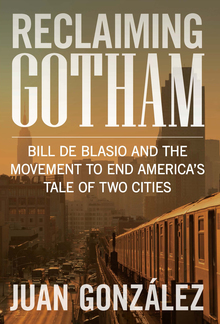Juan González has been a professional journalist for more than 40 years and was a staff columnist at the New York Daily News from 1987 to 2016. He is a two-time recipient of the George Polk Award for commentary (1998 and 2010) and was inducted into the Deadline Club’s New York Journalism Hall of Fame in 2015. A professor of Journalism and Media Studies at Rutgers University from 2017 to 2023, he is currently a Senior Fellow at the Great Cities Institute of the University of Illinois-Chicago.
González is one of the founders and a past president of the National Association of Hispanic Journalists, and a member of NAHJ’s Hall of Fame. During his term as NAHJ president, González created the Parity Project, an innovative program that created partnerships between local communities and media organizations to improve coverage of the Latino community and to recruit and retain more Hispanic journalists. He also spearheaded a movement among U.S. journalists to join other citizen groups in opposing the Federal Communications Commission’s deregulation of media ownership restrictions.
A founding member of the Young Lords Party in the 1970s and of the National Congress for Puerto Rican Rights in the 1980s, González has twice been named by Hispanic Business Magazine as one of the country’s most influential Hispanics and has received Lifetime Achievement Awards from the Hispanic Heritage Foundation, the National Council of La Raza, and the National Puerto Rican Coalition.
He is the author of five books, including: the classic Harvest of Empire: A History of Latinos in America (2000, second edition 2011, third edition 2022), which has been required reading in hundreds of college courses for decades and even spawned an award-winning documentary film narrated by González; News for All the People: The Epic Story of Race and the American Media,” (2012) co-authored with Joseph Torres, which was a New York Times best-seller and finalist for the Robert F. Kennedy Book Award; and Fallout: The Environmental Consequences of the World Trade Center Collapse (2002), which chronicles his work as the first reporter to uncover health hazards at Ground Zero after the September 11, 2001 attacks, and the subsequent as cover-ups of the dangers by the Environmental Protection Agency and other government officials. His latest book, Reclaiming Gotham: Bill de Blasio and the Movement to End America’s Tale of Two Cities, explores the rise of a new generation of progressive municipal leaders and offers valuable lessons for those seeking grassroots reform.
Over the years, more than two dozen feature films and documentaries have featured González as a figure or expert commentator, including: the landmark PBS series Latino Americans (2013); the PBS documentary 9/11’s Unsettled Dust (2021); Takeover (2021), on the occupation by the Young Lords of a South Bronx hospital to protest poor health services; the CNN series 1968: The Year that Changed America, (2018); the Media Education Foundation’s Latinos Beyond Reel: Challenging a Media Stereotype (2012); the Ric Burns history of Latino New York, Nueva York (2010); the PBS biography Roberto Clemente (2008); Spike-TV’s Viva Baseball (2005).













